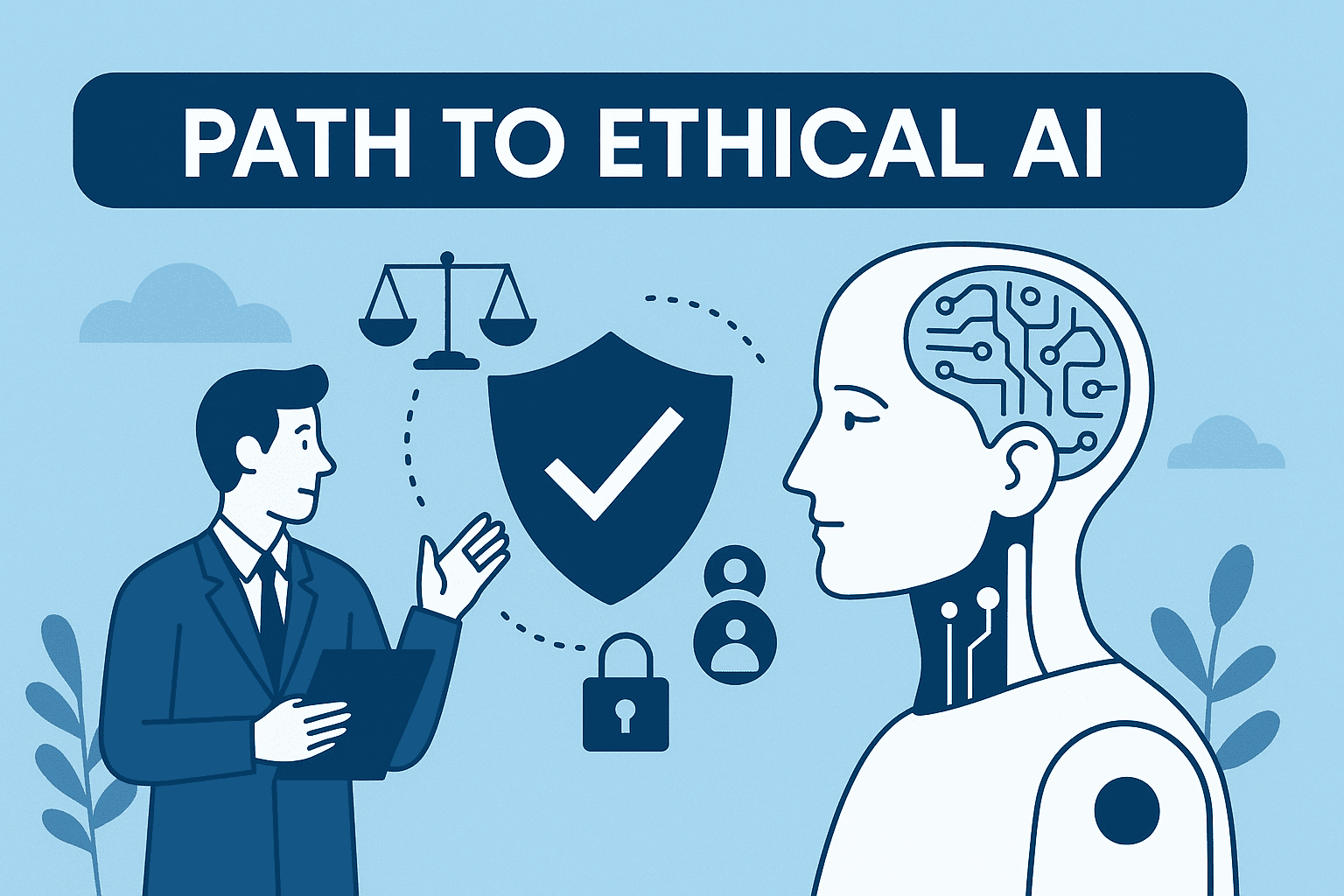Updated on: July 11, 2025
Artificial Intelligence (AI) is reshaping healthcare—from streamlining clinical documentation to enhancing patient care. But as AI becomes more embedded in day-to-day operations, the question that matters most is: How do we ensure AI is used ethically?
At DocScrib, where we leverage Virtual Medical Scribes to help clinicians reduce documentation burden, we believe the Path to Ethical AI isn’t just a choice—it’s a necessity.
In this article, we break down what ethical AI means for healthcare, why it matters, and how organizations can walk this path with confidence.
What is Ethical AI in Healthcare?
Ethical AI refers to the development and use of artificial intelligence technologies in ways that are:
✅ Fair
✅ Transparent
✅ Accountable
✅ Respectful of privacy and human dignity
In healthcare, where lives are at stake, ethical considerations are not optional—they’re foundational.
Why Ethical AI Matters in Healthcare
The stakes in healthcare are higher than in any other sector. A poorly trained or biased AI system could:
-
Misinterpret patient data
-
Exclude vulnerable populations
-
Compromise privacy
-
Undermine trust between clinicians and patients
To build sustainable, people-centered AI in healthcare, ethics must be at the core of every system, including those used for documentation, diagnosis, and decision support.
Key Pillars of Ethical AI
1️⃣ Transparency
AI should never be a “black box.” Healthcare professionals must understand how decisions are made and what data drives them.
2️⃣ Fairness & Equity
AI must serve all populations equally—without bias related to race, gender, socioeconomic status, or geography.
3️⃣ Privacy & Security
Patient data is sacred. Ethical AI respects HIPAA, GDPR, and other privacy laws by design.
4️⃣ Human-Centered Design
AI should augment, not replace clinicians—empowering them to make better decisions, not automating care at the expense of human touch.
How Virtual Medical Scribes Fit into the Path to Ethical AI
At DocScrib, we use AI to assist—not replace—humans in the task of medical documentation. Here’s how our Virtual Medical Scribes embody ethical AI principles:
✅ Human-in-the-Loop: Every note is reviewed and verified to ensure accuracy and empathy.
✅ Data Privacy: We adhere to the highest standards of security and HIPAA compliance.
✅ Transparency: Clinicians control how their notes are created, edited, and stored.
✅ Burnout Reduction: By automating tedious tasks, we help providers focus on patient care while maintaining full oversight.
Real-World Impact: Why Ethics Can’t Be Ignored
Consider these examples:
-
An AI system trained on biased data could misdiagnose patients from minority groups.
-
Automated documentation tools that store sensitive conversations improperly can result in breaches of patient confidentiality.
This is why ethical AI is not just about technology, but about trust.
Ethical AI Checklist for Healthcare Organizations
Before adopting AI-driven solutions, healthcare leaders should ask:
✅ Is the system transparent and explainable?
✅ How is patient data protected?
✅ Has the AI been tested for bias across diverse patient populations?
✅ Does the technology improve clinician well-being or add stress?
✅ Can the solution adapt as ethical guidelines evolve?
At DocScrib, these questions guide every decision we make.
The Future: AI as a Force for Good
With the right guardrails, AI can:
-
Free up more time for patient interaction
-
Improve healthcare access for underserved populations
-
Reduce medical errors
-
Cut administrative overhead
But to get there, we must stay on the Path to Ethical AI—where technology amplifies humanity, not diminishes it.
Take the Next Step with DocScrib’s Ethical AI Solutions
At DocScrib, we’re proud to be walking the ethical AI path—helping clinicians through our Virtual Medical Scribes that put transparency, accuracy, and patient safety first.
👉 Explore how we can help at DocScrib
👉 Or Book a Free Demo to see ethical AI in action.
✅ Key Takeaways:
-
Ethical AI in healthcare is essential for trust, safety, and fairness.
-
Virtual Medical Scribes like DocScrib are examples of AI that augments, not replaces, human care.
-
Every healthcare organization must evaluate AI through an ethical lens before implementation.
